- Home
- Brian Garfield
Sliphammer Page 2
Sliphammer Read online
Page 2
Warren walked to the casket and leaned both hands on it. “Wondering what he’d want us to do?”
“Something like that, maybe. You know it didn’t make any sense, kid. They had no fight with Morg. It was Wyatt and me that ran the Cat Town quarter. But Morg was at the OK Corral and that’s all they cared about, I guess. He shouldn’t have been there.”
“You’re his brothers.”
“Aeah, but Wyatt and I carried city badges. Morg was a private citizen. It wasn’t his fight.”
“The way I heard it,” Warren said carefully, “that fight at the OK Corral had nothing to do with the law. Would it have stopped the fight if you hadn’t been wearing a badge?”
“Kid,” said Virg, “you keep a civil tongue in your head, hear?”
“I was just asking, Virg.”
Virg nodded. “Wyatt’s not the only one tense. I’m sorry I jumped at you.”
“That’s all right.”
Warren looked around. The light was getting very poor—sundown. Holliday and the three ruffians played cards without talk. Wyatt and Josie stood in murmuring embrace at the back of the express car. Here in the exact center of the car the casket stood across a pair of two-by-fours. It was an expensive diamond willow casket. Eight black horses had drawn the ornate hearse that had brought Morg to the train. Warren remembered the crowd that had come down to see them off—gamblers, whores, politicians, and mineowners—all dressed in black like the pleasent occupants of the express car, black made dusty by the desert wind.
Virg cleared his throat and Warren looked up at him. Virg said, “Let me tell you how it was, Warren, because maybe you got a lot of lies from Doc and the rest of them. It wasn’t like the dime novels will tell it, but it wasn’t like Behan’s Nugget newspaper will tell - it either. Wyatt and I took over Cat Town down there because the town needed somebody to run it, so it wouldn’t get out of hand with tinhorns. We ran clean houses and clean gambling, which is not against the law, and the Tombstone council appointed me city marshal because they figured Cat Town would take orders easier from one of its own. So I had a city badge and brother Wyatt had a federal deputy’s badge because he volunteered to collect the taxes in Cat Town, which was a job that paid high but didn’t offer good chances to live long. I don’t apologize for us, kid, but I want to make you see. You take a tough boom camp like Tombstone and you need a place where folks can blow off steam. That was Cat Town. We weren’t hired to close it down. We were just there to keep the peace. We’re businessmen, Wyatt and me, and you don’t take any profits from dead men.”
“What about the OK Corral, then?”
“I’m coming to that, kid. You’ve spent your whole life in Ohio and I think you’ve read too damn many dime novels about this’ here Wild West of ours. You read a lot about plainsmen and cowboys and other claptrap like that. Your brothers and I, we’ve never been cowboys, never want to be. About the only time we spent riding the range was back when you were half grown, when the price of buffalo hides was so high Wyatt and I made a little fortune hunting buffalo for two months. But out here’s just like back there, at the bottom of things—a man’s still got to make a living, which is what the dime novels don’t tell you when they bleat about heroes of the plains and Indian fighters and all that hogwash. The Earp brothers are businessmen, kid, not penny-dreadful heroes. We’ve owned saloons in every town from Ellsworth to Tombstone. It may not be heroics but it makes a profit, which is a thing that can be hard to come by in a country that gets dumped on its butt by financial panics every other year and half wiped out by blizzards and droughts and a crash in the price of silver. It’s all accounting, kid, whether you’re a rancher or a hard-rock miner or a saloonkeeper. So you had better get a lot of notions out of your head before you go around begging for somebody to give you a gun you can strap on. A gun’s just a tool you use when you haven’t got a more profitable way to settle your quarrels.”
Warren said, “But what about the OK Corral?”
Virg shook his head. His face, in the deepening shadows, was hard to make out.
Finally he said, “That started in Kansas, you know.”
“In Kansas?”
“Back right after the war. Before you were hardly out of baby pants. Texans brought their cows up to Kansas, hating Yankees, and Kansas hired a bunch of people to keep the Rebs in line. Wyatt and I did that kind of work for a while because Kansas paid high to get fighting men. That was some years back and we were some younger and looser than we are now.”
“The Clantons didn’t come from Kansas.”
“They came from Texas, kid, and they carried along that hate of Kansas Yankees, which meant us. One night Wyatt had to throw Ike Clanton out of a saloon of ours. I tangled with Johnny Ringo once or twice. And Doc took some stolen cows away from old man Clanton last summer. Not for law but to sell the cows himself, down in Mexico. Nobody could prove they were stolen.”
“How’d Doc get tied up with you, anyway?”
“He had a girl friend that worked in one of Wyatt’s houses. But that’s a long story. You asked about the OK Corral and I told you. It was Texans and Kansans and we were fighting the goddamned Civil War again, is all it amounts to, because I’ve yet to meet a Texan who really believes the war’s over and Texas lost. So you see kid, it’s not heroes of the plains versus villains with black mustaches, it’s just a goddamned stupid feud between people who ought to grow up and learn better.”
“You were there—at the OK Corral.”
“I didn’t like it.”
“But you were there.”
“I was there,” Virg said in a low, harsh voice. “I was there, kid, and I got nicked by a bullet or two, and I helped kill three men-for no good reason I could think of, and afterwards they put enough buckshot in this shoulder to fill a soda cracker keg, and after that they killed our brother here, and after that Wyatt went out and killed a couple more of them, and now somebody else is gonna get killed, and I just want to know where the spittin’ hell it’s all ever going to end.”
His face completely masked in shadow, Virg wheeled away and tramped back to a dark corner. Warren stared down at the coffin under his hands.
The engine whistled, several short hoots. The train was beginning to slow down. Warren looked toward the shadowy back end of the car. He could make out Josie back there but Wyatt was no place in sight. His glance traveled the length of the car. The poker game was suspended; Holliday and Texas Jack were getting to their feet. Wyatt wasn’t with them, either. Wyatt wasn’t anywhere in the car.
The grab of brakes threw Warren against the coffin. He righted himself and turned toward the half-open door, but Doc Holliday shouldered past him and growled, “Stay put right here, sonny,” and went on to the door with Texas Jack right behind him. Disobediently, Warren followed them and stood behind Texas Jack’s shoulder.
The train racketed to a stop with a sigh of sliding brake shoes. Warren saw a lot of freight cars on sidings in the twilight and a man dimly visible standing on the dusty ground beside the express car.
The man said, “Where’s Wyatt Earp?”
Doc Holliday said, “Buenos fucking tardes, Stillwell.”
“Up yours, Doc. The great man too chickenshit to come out of there behind you?”
Warren shifted to the side; he saw, now, that Stillwell had a rifle pointed right at Doc’s belly and cocked. The rifle shifted an inch and Stillwell yelled, “Where the hell is he?”
“Right here.”
Warren jerked. Wyatt’s deep voice had shot forward from the shadows behind Stillwell.
“Right here, you son of a bitch!”
Stillwell wheeled, frantic. The rifle didn’t turn as fast as he did. Two brilliant stabs of flame lanced from the shadows between two freight cars. Warren felt the concussion of the shotgun’s earsplitting roar.
The double ten-gauge blast slammed Stillwell back. He pitched and toppled, aglisten with raw meat and gristle from rib cage to shoulder.
Warren was unable to swall
ow. He felt needles in his knees. His eyes refused to blink.
Wyatt stepped into sight. It was too dark to make outhis face. Stillwell was down flat and moaning.
Warren felt weight behind him—Virg, breathing through his teeth, and Josie. Warren felt the hard grip of her hands on his arm. He couldn’t rip his eyes off Stillwell. Stillwell was grumbling deliriously; Doc Holliday drawled cruelly. “Don’t be a poor loser, Frank.”
Wyatt Earp snapped, “He wasn’t playing a game.”
“Sure he was—sure he was. What else you want to call it?”
Warren’s legs began to tremble. The man wasn’t even dead yet. Warren saw Wyatt step across Stillwell and drop the empty shotgun across Stillwell’s legs. Wyatt stood below them, looking up. Behind Warren, Virg began to curse in a dead, flat, obscene monotone.
Somewhere in the ensuing run of moments, Stillwell died. Wyatt bent over him to make sure. Josie breathed, “Sweet, sweet Jesus.” Wyatt reached up for a grip and climbed into the express car.
The engine whistle startled Warren. He turned slowly in time to see big old Virg looking at Wyatt with the kind of stare he might have used on a stranger whom he didn’t know and didn’t want to meet.
The train started up, with a curious half-scared knot of pedestrians starting to appear in the yards. Wyatt Earp slammed the door shut. Warren heard him growl, “I’m sick of Arizona anyway.”
Two
Jeremiah Tree sat his horse on the hillside, crossed one leg over the saddle horn and packed his pipe without hurry, lazy in the heat, a craggy, big man with a weathered, sun-squinted face and leathery little creases crosshatching the brown back of his neck. All around him the desert was in flower—Spanish bayonet, yucca, hummingbird bushes, chollas, staghorns, ironwoods, cat-tlaw, Joshuas, mesquite, paloverde, prickly pe’ar, ocotillo and the little red ones some drunken botanist had labeled with punful helplessness Echinocereus damdifino. Damned if I know, yeah. Didn’t matter if you knew their names anyway. The blossoming beauty of riotous color was a brief annual discovery that always made him feel as if he was going back to some very primitive and basic thing, an innocence and cleanliness long gone.
He put the pipe in a corner of his wide mouth but did not light it. It was too hot to smoke. He sat looking down at the ranch, where the sun seemed to set the corrugated metal shed roofs afire. The hot wind rubbed itself against him with abrasive dryness.
He had been sitting here for an hour, watching the two saddled horses ground-hitched in the ranch yard below. He had a fair idea what the two of them were doing inside, and he didn’t want to interrupt. He chewed on his pipe and waited. Absently, his left hand hooked itself for comfort over the hammer of his hip-holstered six-gun. It was a good fast gun: a fighting man’s gun. Forty-five center fire single action with a 4%-inch barrel and a front sight that had been filed down low and smooth so it wouldn’t get caught on the holster coming out. It was a sliphammer six-gun: it had no trigger inside the oval guard; the hammer spur had been sawed off, cut down, and rewelded in place halfway down the back of the hammer. The hammer spring had been filed with care. It took a great deal of experience and practice to use a sliphammer gun effectively, but once the technique was learned—scraping the ball of the thumb fast over the lowered hammer spur—a sliphammer shooter could fire three times as fast as a man with a trigger, and far more accurately than an idiot who fanned.
Jeremiah Tree went with the gun: he had a workmanlike look. His face was the color of the worn walnut handle of the gun. His eyes were the color of the metal at the gun’s muzzle where holster friction had worn off the bluing: the silver color of a freshly minted .45 slug, before corrosion dulled the lead. His skin had the texture of holster leather softened by countless saddle soap-ings. His shirt had been washed too often; the sleeves had shrunk halfway up his forearms. His long-legged stovepipe Levi’s were faded and white-threaded.
His hair was thick and black, curling out under the stained hat, and generally he had the look of an Indian or a half-breed, though he was neither: both parents had been Scotch-Irish. A history of fights was recorded in the myriad ^minor scars and half dozen major ones on his exposed face and hands; victories were implied by the fact that he was neither disfigured nor crippled.
The only clue to his present occupation was the pair of pinholes in the left breast patch pocket of his shirt. He wasn’t wearing a badge today.
Alerted by movement in the porch shadows, he straightened in the saddle and put his boots back into the stirrups. Down there he saw Caroline come out into sight and lift one hand to shade her eyes, looking toward the western horizon. Jeremiah Tree gigged his horse gently downhill.
She hadn’t seen him yet; she was looking the other way. As Tree rode switchbacking down the hillside, he saw Rafe come out of the house ramming his shirt tails into his Levi’s and then sweeping the disheveled hair back out of his eyes. Rafe walked up behind Caroline, reached under her arms and laid both hands on her breasts. The girl tipped her head back against his shoulder.
Tree’s face showed no break in expression. He was thinking of what Caroline’s father had said to him a month ago: I tried to talk her out of it, Sliphammer boy. Honest to God I did. I told her not to marry your brother because he just ain’t tough enough for her. She’ll put spurs to him one time when she ain’t even thanking about it, and she’ll rip him to shreds ‘thout ever knowing how it happened.
He brought his horse around the end of the porch. He heard crickets in the trees down by the spring. A hawk drifted above the house; a dog lay asprawl under the porch, panting in the shade.
Sliphammer Tree said, “Whose dog is that?”
Rafe had taken his hands down off Caroline’s breasts when he’d heard the hoofbeats. Now they were holding hands. Rafe said, “Beats me. Stray, I reckon.”
“Lo the bride and groom,” said Sliphammer with a little smile at Caroline. Husky and blonde, she made him think of haystacks. She had a sturdy, firm body; her breasts seemed so tightly packed and swollen that one good squeeze might bring forth a squirting shower of juices. She had the eyes of an alert doe stepping into a strange clearing.
Caroline said, “Do you like the place?”
Sliphammer had been inspecting the ranch. The buildings were weathered and tumbledown, with the look of abandonment. He said, “It looks lived in—hard to tell by what.”
“Snakes and roaches, mainly,” said Rafe. He was young and very earnest: half amazed by- his own possession of this vibrant, vital girl-wife he had, he had turned eager and flushed, and impatient with ambition. It troubled Tree but he had said nothing in the past week; once they had got married it had seemed too late for avuncular advice. The kid would have to make his own mistakes.
Rafe seemed irritable just now: his brown eyes flashed erratically. He was chunky and broad through chest and shoulder; in a few more years when he filled out completely he would be a powerful man. His jaw was wide and blunt. He had Sliphammer’s long bladed nose and the shape of his cheekbones and eyes was the same, but his bone structure was heavier, less graceful, and his coloring was lighter. They had shared the same father but different mothers: the frontier was hard on women.
Rafe said, “Damn it, do you like the place?”
“Looks like you’ve already got your minds set on it. Do you need my approval?”
Rafe’s chest swelled but Caroline cut him off: she said, “We think we can make a good place out of it, Jerr.”
She was the only one who’d ever called him that. He’d been called Jeremiah, Jerry, Jeremy, and Sliphammer. The West didn’t seem satisfied with a man until it had surrounded him with descriptive nicknames. Caroline’s father called her the Milkmaid, and truly she looked like one. Rafe was known as Wrangler Tree because his specialty was horses.
The house creaked, settling. Rafe said in a pushy, defiant voice, “Make a goddamn good horse ranch out of this outfit. Take a little cash and a lot of sweat but we’ll do it proud.”
In spite of himself Sliphammer
said, “You’ll do as you see fit, I reckon, but maybe it’s a little early to chance it on your own. First of all you haven’t got the money to buy the place, and if you do it on borrowed cash all it’ll take will be one bad season to wipe you out. A man ought to have a nest egg before he goes into business on his own.”
“We’ll take the chance.”
“That’s what the last fellow thought who owned this place. Why do you think it’s up for sheriff’s auction?”
“Because the last fellow didn’t know how to run a ranch, which is not my weakness,” Rafe snapped. “For a man who’s worked for wages all his life you’re mighty free with your advice, Jeremy. I’m a married man and Caroline deserves a whole lot better than a thirty-a-month wrangler. You work your whole life for dirt wages and end up with nothing to show for it and when you die your friends got to take up a collection to bury you. That ain’t for Caroline and me.”
Caroline pushed her lower lip forward to blow hair off her forehead. Sliphammer said to her, “You agree with that?”
“If I didn’t I wouldn’t be here.”
“Hell,” said Rafe, “I got to admit it was Caroline’s idea in the first place.”
I should have known, Sliphammer thought. What he said was, “With a little luck I guess you might make it.” There was no point in arguing with them.
“Bet your ass we’ll make it,” said Rafe. Caroline blushed, and Sliphammer found that faintly surprising.

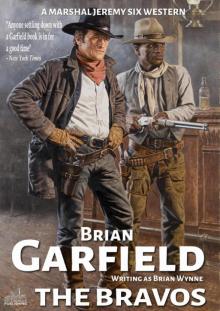 Marshal Jeremy Six #3
Marshal Jeremy Six #3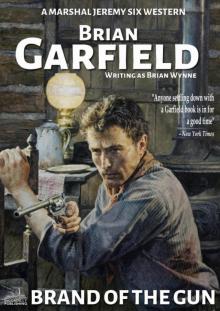 Marshal Jeremy Six #6
Marshal Jeremy Six #6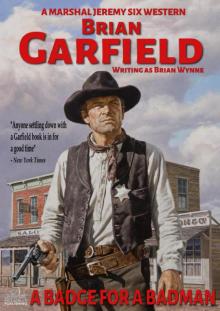 Marshal Jeremy Six #5
Marshal Jeremy Six #5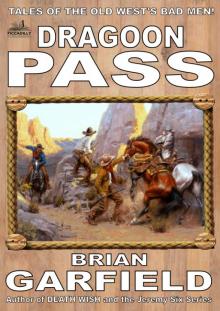 The Outlaws 2
The Outlaws 2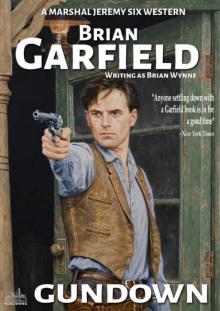 Marshal Jeremy Six #7
Marshal Jeremy Six #7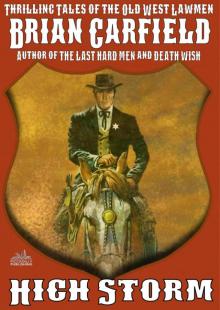 The Lawbringers 4
The Lawbringers 4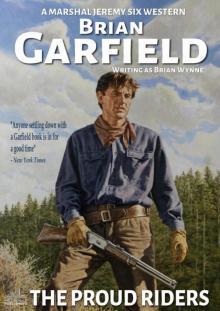 Marshal Jeremy Six #4 the Proud Riders
Marshal Jeremy Six #4 the Proud Riders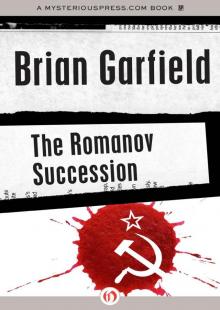 The Romanov succession
The Romanov succession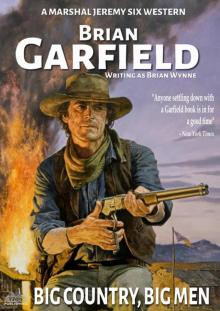 Marshal Jeremy Six #8
Marshal Jeremy Six #8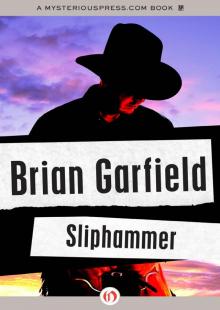 Sliphammer
Sliphammer Line of Succession
Line of Succession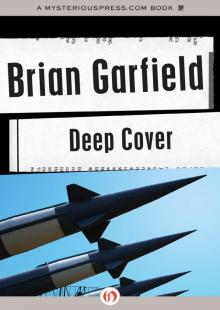 Deep Cover
Deep Cover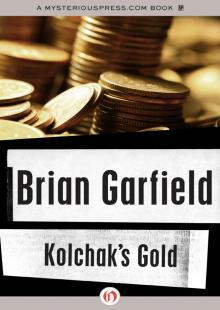 Kolchak's Gold
Kolchak's Gold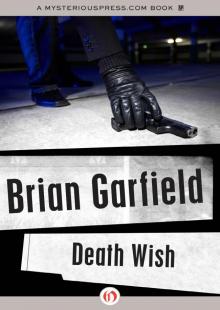 Death Wish
Death Wish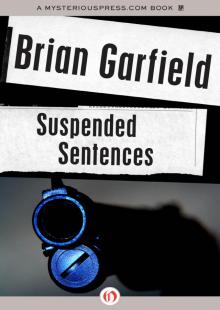 Suspended Sentences
Suspended Sentences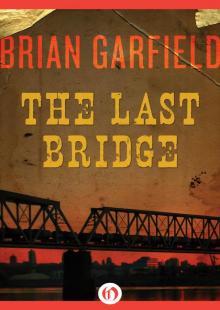 The Last Bridge
The Last Bridge Relentless
Relentless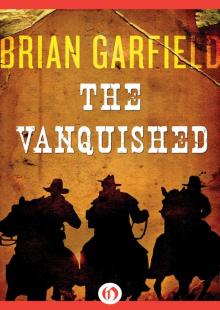 The Vanquished
The Vanquished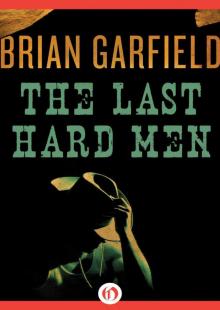 The Last Hard Men
The Last Hard Men Hit and The Marksman
Hit and The Marksman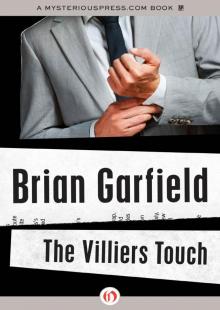 Villiers Touch
Villiers Touch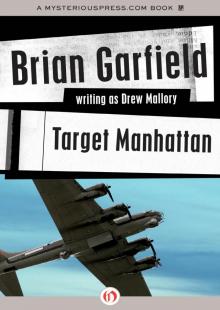 Target Manhattan
Target Manhattan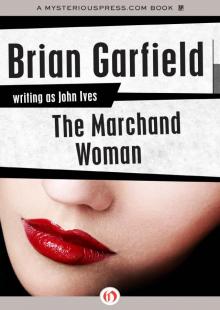 Marchand Woman
Marchand Woman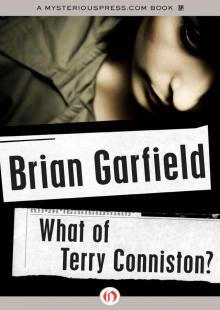 What of Terry Conniston?
What of Terry Conniston?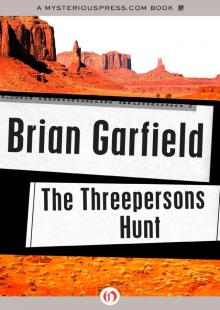 Threepersons Hunt
Threepersons Hunt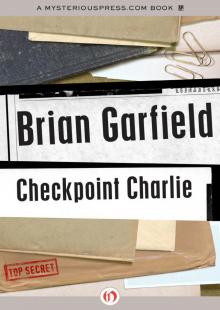 Checkpoint Charlie
Checkpoint Charlie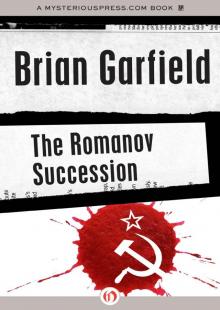 Romanov Succession
Romanov Succession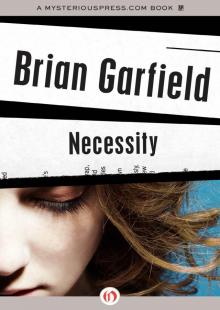 Necessity
Necessity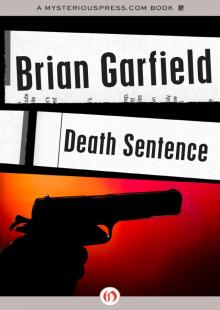 Death Sentence
Death Sentence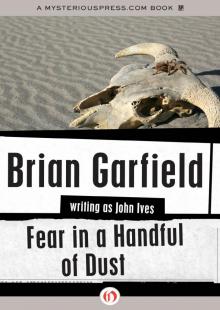 Fear in a Handful of Dust
Fear in a Handful of Dust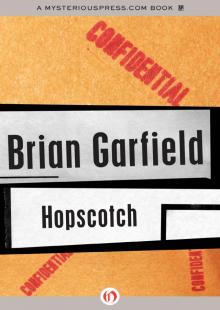 Hopscotch
Hopscotch